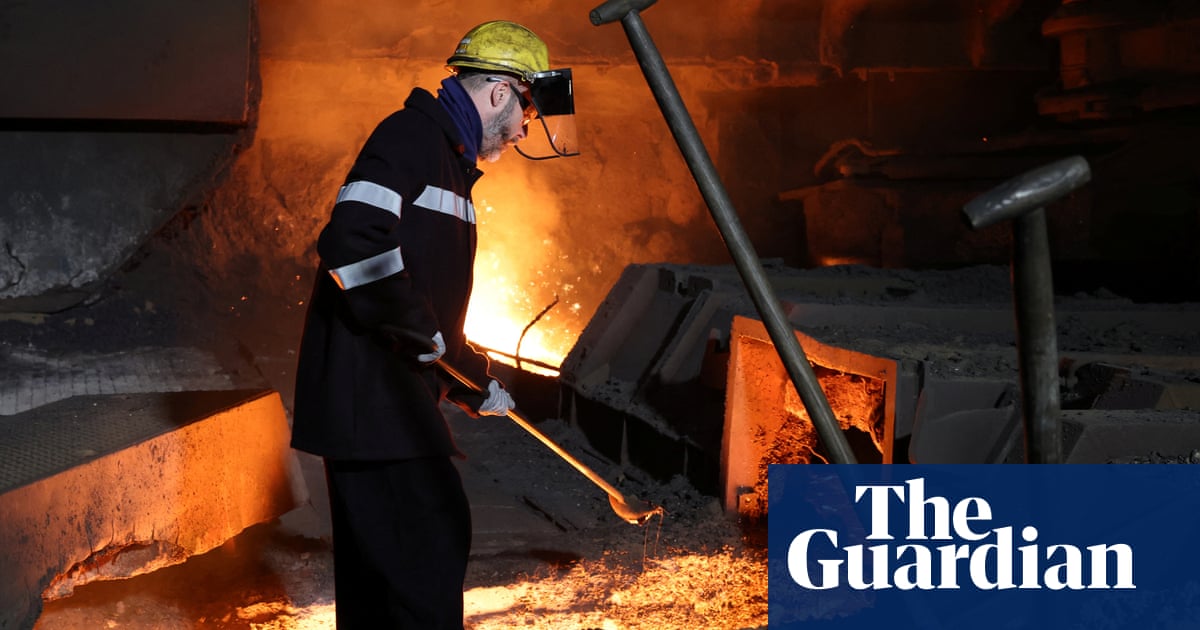The US deal on steel tariffs imposes conditions on the “nature of ownership” of British plants as part of its efforts to freeze out Chinese steel, it has emerged.
It is understood Donald Trump’s administration pushed for requirements to be attached to the steel deal to ensure that the Chinese-ownedBritish Steelplant in Scunthorpe was not used by Beijing as a backdoor to circumvent US tariffs.
Government sources say Washington is understood to be reassured that Scunthorpe is now in effect controlled by Jonathan Reynolds, the business secretary, and is likely not to come back under the direction of Jingye Group, its Chinese owners.
However, before the UK government took steps to seize control of British Steel last month the US had been concerned that the Scunthorpe plant could have been used as a base for processing Chinese steel to take advantage of lower tariffs.
TheUS-UK deal, agreed on Thursday, has come as a relief to the car and steel industries, which had been worried about job losses, although some of the terms are still unclear. It is set to bring car tariffs down to 10% and steel tariffs to zero if conditions are met.
Peter Mandelson, Britain’s ambassador to the US,said the deal had immediately prevented job losses at Jaguar Land Rover’s plant in the West Midlands. “This deal has saved those jobs,” Mandelson said in an interview on CNN. “That’s a pretty big achievement, in my view, and I’m very pleased that the president has signed it.”
Government sources said JLR had planned for imminent cuts among its 30,000 staff in the UK but had not informed unions in the hope that a deal with the US could be struck to eliminate the 25% tariffs on exports of cars to the US.
Keir Starmer told ITV on Friday that the deal would be “measured in thousands and thousands of jobs that will be protected, saved and will thrive as a result” in steel, cars and in pharmaceuticals.
Government sources said the UK was still working with the US to define the exact requirements for the quota of steel allowed to be exported tariff-free, looking at the security of the supply chain and on ownership, so that the deal could be introduced as soon as possible.
The text of the agreement makes clear that US steel tariffs of 25% will be lowered only if certain US requirements are met on the “security of supply chains” and the “nature of ownership of the relevant production facilities”.
It says: “Understanding the United Kingdom will meet these requirements, the United States will promptly construct a quota at most favored nation (MFN) rates for UK steel and aluminum and certain derivative steel and aluminum products.”
Howard Lutnick, the US commerce secretary, boasted on Thursday: “The British government as part of this deal nationalised British Steel.”
UK sources said the US had not pushed Britain towards nationalising British Steel but had been impressed with the action taken against its Chinese owners before Easter.
Chrysa Glystra, the director of trade and economic policy at UK Steel, the industry body said: “The terms of the deal highlight a number of hoops to jump through before the UK steel sector can see the benefits of this deal.”
The UK exports about 200,000 metric tons of steel per year to the US, which is worth about £400m.
Glystra said it was still not clear what the terms and conditions of the tariff exemption were or when it would kick in, underlining the admission by government sources that they settled on a quick deal to “bank progress” and save jobs in the car industry.
“To fully assess the impact on our sector, we will need to fully understand the supply chain conditions that need to be met, how the quotas will be defined and when these will take effect,” Glystra added.
Trump, who has now turned his attention to the first trade talks between the US and China in Geneva on Saturday, said the “final details [of the UK deal] are being written up in the coming weeks”.
There had been reports that the deal in effect handed the US a veto on Chinese investment in UK sectors covered by the deal but No 10 said this was not the case.
